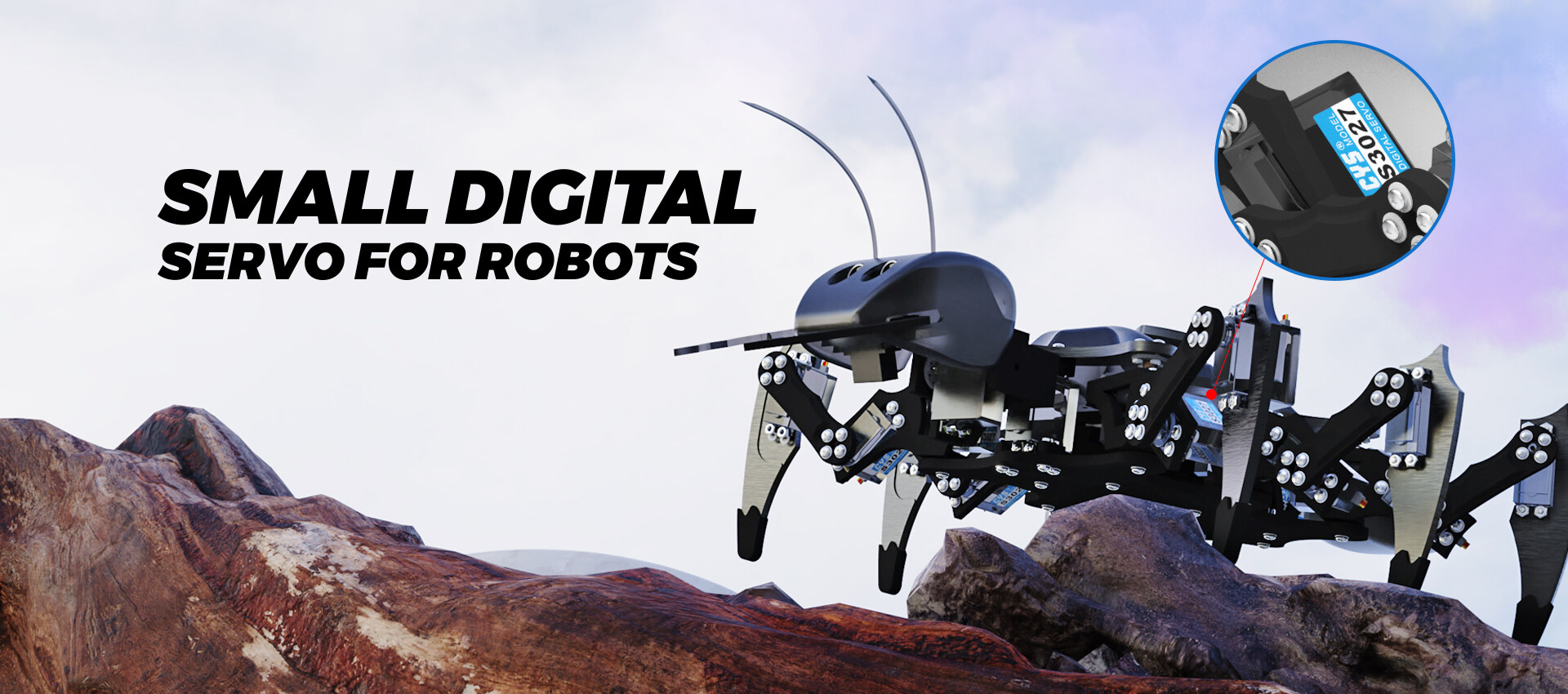Email cannot be empty
Password cannot be empty
Email format error
Email cannot be empty
Email already exists
6-20 characters(letters plus numbers only)
The password is inconsistent
Email format error
Email cannot be empty
Email does not exist
6-20 characters(letters plus numbers only)
The password is inconsistent


The Versatile Applications and Importance of Servos
A servo is a widely used and critical actuator in modern technology, found in various industries and fields. Thanks to its precision, fast response, and reliability, servos have become an indispensable part of automation and precision control. From remote-controlled models to advanced robotics, from drones to autonomous vehicles, servos have permeated nearly every industry, providing precise motion control and efficient task execution.
1. Remote-Controlled Models and Aircraft
Servos play an essential role in remote-controlled (RC) models, such as aircraft, cars, and boats. They control the model's direction, steering, and posture by adjusting control surfaces like elevators, rudders, and ailerons. In RC aircraft, servos are responsible for controlling the plane's flight surfaces, ensuring stable and responsive flight. The precision and speed of servos directly affect the aircraft's handling and stability, making them critical components for smooth and accurate flight.
2. Drone Applications
Drones (UAVs) are cutting-edge devices that rely on precise control systems to ensure stability and accurate positioning. Servos are used in drones to control the attitude, direction, and stability of the aircraft. When executing precise flight paths or navigating complex environments, servos are key to making real-time adjustments to the drone's control surfaces. This ensures that the drone remains stable and performs well, even in challenging conditions.
3. Robotics and Automation
Servos are widely used in robotics, where they drive joints, end-effectors, and tools to perform a variety of tasks. Industrial robots rely on servos for precision movements like welding, assembly, and material handling. Service robots, such as household assistants or medical robots, also use servos to perform human-like tasks, including picking up objects, cleaning, and interacting with people. Servos enable robots to carry out complex and highly accurate actions, making them indispensable in both industrial and service applications.
4. Autonomous Driving and Unmanned Vehicles
One of the key components of autonomous driving technology is the vehicle's ability to steer and navigate on its own. Servos are used in autonomous vehicles to control the steering wheel, allowing the vehicle to follow a predetermined path with precision. In addition, servos are crucial for tasks such as automated parking, obstacle avoidance, and lane-keeping, ensuring the vehicle operates safely and efficiently in real-time.
5. Bionics and Biomechanical Devices
Servos aren't just limited to industrial and automation fields—they also play a vital role in bionics and biomechanical devices. In bionic robots, servos simulate the movement of joints and muscles, allowing robotic legs, hands, and other body parts to move with human-like precision. Whether it's prosthetics or robotic exoskeletons, servos help replicate the movements of natural limbs, providing more functional and life-like mechanical devices.
6. Camera Systems and Targeting
Servos are widely used in camera systems and targeting mechanisms for adjusting the angle and direction of lenses or sensors. In applications like drone photography, surveillance systems, and robotic vision, servos provide precise control over the camera's orientation, ensuring stable and clear images. Even in high-speed movement or complex environments, servos help ensure the camera stays steady and the image remains sharp.
7. Aerospace and Space Exploration
In aerospace, servos are crucial for attitude control in spacecraft, satellites, and deep-space exploration vehicles. Servos adjust control surfaces or thrusters to ensure spacecraft maintain the correct orientation and trajectory. This enables critical tasks such as orbital adjustments, rendezvous operations, and space docking. In the harsh conditions of space, servos are essential for the stable and precise functioning of various space technologies.
Conclusion
Servos are indispensable components in modern precision control systems, finding applications across numerous industries and fields. Their fast response, precision positioning, and powerful performance make them essential for applications in RC models, drones, robotics, autonomous vehicles, bionics, and many other advanced technologies. Whether in industrial automation, scientific research, or everyday smart devices, servos continue to expand their role and provide invaluable support for efficient and reliable operations.
If you're looking to enhance the precision and performance of your equipment, servos are undoubtedly a solution you shouldn't overlook.
